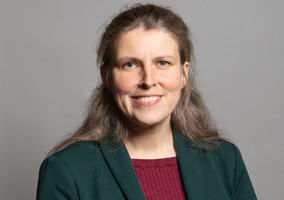The Charity Commission’s online annual public meeting was a splendid opportunity for the Commission to reach out to an unusual number of attendees, but the chair’s keynote speech garnered indignant reactions on social media and beyond.
What went wrong?
Some good points
The speech contained a number of sound points which might have got lost in some of the reporting.
It is true that, as she emphasised, a lot of laudable generosity, volunteering spirit, courage and determination to do good for others has been manifest in the response to the coronavirus and lockdown. She paid tribute to the work of charities as part of this. She thanked trustees for all the hard work trying to maintain the viability of their charities. She knows that many charities are having a tough time, and said so.
She is right that charities have a higher degree of accountability than non-charitable organisations to the public since they benefit from the cachet and financial advantages of charitable status. It is also true that people need to believe the motives of charity leaders are truly what they say they are.
It must be right at least to look, as she proposes, at whether some potential charities are being unnecessarily put off by the current practice of registration. And it is good for the chair to be saying that she wants people from more diverse backgrounds and world views to get involved in charities.
Unfortunately, all of this has been overshadowed by the egregious flaws of the speech, which should surely have been challenged and corrected by senior staff or other board members of the Commission?
The Flaws
Failure of Emotional Intelligence
In so far as Baroness Stowell was trying to influence an audience of charity representatives, she showed spectacular insensitivity.
Her main lesson from the pandemic was that public support for charities cannot be taken for granted. Covid-19 has not changed the main challenge the sector faces, she says. Really? Charities have suddenly lost much of their income for entirely external reasons, and have had to make heart-breaking cuts and change their entire modus operandi. That is certainly “the main challenge” they are facing.
They really do not need to be told they depend on public support. The desperate problems now afflicting them have nothing to do with letting down public expectations, but with an unforeseen catastrophe that has removed their income. To highlight this “lesson” in current circumstances is out of touch and a notable failure of emotional intelligence.
So is the description of trustees as “the Charity Commission’s first line of defence”, ruining the intention to thank them for their efforts. Could one possibly think of a more insensitive way of describing trustees who are giving their all, not for the Charity Commission, but for their charitable cause and beneficiaries, and the survival of the charities they love?
Disparaging Charities
Secondly, Baroness Stowell indulges her familiar bad habit of tarring the charity sector as a whole with the same brush. Her peroration emphasises the “change that is required within charities themselves to ensure they retain, and in some cases regain, broad, diverse public support”.
There may be a few exceptions here and there, but overall the picture she paints is that the entire sector has failed to live up to public expectations, is lacking in humility and accountability, is in danger of losing public support and must change. This saloon bar generalisation is simplistic, vague and unjust.
Implicit is a very poor, even insulting view of our sector. We are arrogant. We don’t care about what the public expects and wants of us. We are frightened of accountability and openness. Most of the 168,000 organisations already on the register need a good kick up the backside if we are not to slide into further disrepute and the end of public support for charities.
True, the Commission’s chair is not supposed to be cheerleader for charities and must be independent of them. But this one is repeatedly disparaging the sector as a whole, notwithstanding her remit to promote public trust and confidence in charities.
Nor in other respects does she show understanding of the extraordinary variety of charities and charitable enthusiasms. It isn’t all about humility and kindness to other people and Captain Tom. The lockdown also showed the inestimable value of green spaces and countryside, walking and exercise, which so many charities have championed for so long. It highlighted women’s struggles against domestic violence, and many other gross inequalities in our society. Indeed, the speech broadly ignores charities’ contribution via empowerment, campaigning, advocacy and lobbying. The chair of the Charity Commission should not be promoting a restricted view of what charities are and do.
One-eyed view of public expectations
As she has many times before, Stowell suggests that people will be more supportive of charities which “recognize a responsibility to uphold the special status charity (sic) holds in the public mind”; and that “success depends… on meeting public expectations of what charity (sic) means in the way in which charities go about their work”. But the Commission’s efforts to create a narrative of “the public’s” expectations of charities’ behaviour via its limited research programme have proved on close inspection to be unreliable and unconvincing. https://andrewpurkis.wordpress.com/2020/06/23/not-a-moment-of-glory-for-the-charity-commission/
What Baroness Stowell continues systematically to underestimate is that people usually support particular causes. The key driver is enthusiasm for the cause and the particular charity. They don’t put money in the tin or write their direct debits for humility, dignity, selflessness or any other “standard” mentioned by the Baroness, nor to support the special status of “charity”: they do it for children in need, their religion, their love of nature and the environment, solidarity with battered women, and so on, and for a charity they believe will pursue that cause wholeheartedly and for love.
You would not know it from her speech, but charities’ principal responsibility is not to uphold the special status of charities but to their beneficiaries and their cause, and pursuing it for the public benefit – two words that are, as usual, entirely absent from this speech.
Muddling “charities” with “charity”
Baroness Stowell repeats the habit, now unfortunately entrenched in many Commission documents since her arrival as chair, of equating charities with “charity”. The Commission’s mission is now worded as enabling “charity” to thrive, whereas Parliament has tasked them to enable charities to thrive.
Their preference for undefined “charity” reflects a desire to spread their remit to embrace what they refer to as “the spirit of charity” or, in this speech, “charitable instincts”, and the whole world of giving and self-sacrifice in pursuit of social good. There are three big problems with this:
- It is not what Parliament tasked them to do, nor do they have authority and legitimacy in this vast moral arena.
- It is vague, reducing the clear, practical guidance that the sector needs to a none-too-compelling episode of Thought for the Day.
- It is an invitation to mission creep.
For charity with a small “c” is that quality of love and generosity of spirit linked by St Paul with faith and hope. It is at work in all sectors of society, in our families and in all kinds of informal relationships with neighbours and friends, in many statutory services – just think of the loving courage and kindness of so many frontline staff in the NHS and care homes -and in the multitude of voluntary organisations that are not charities. It has never been restricted to registered charities, and never should be.
Armed with this extraordinary redefinition of its role, the Commission’s chair now poses as a custodian on behalf of the public of all the moral qualities associated with charity – those mentioned in this speech include kindness, selflessness, generosity, humility, dignity and decency.
Yet the chair of the Charity Commission is not the Archbishop of Canterbury. It is not her job to promote charity with a small “c”.
Conclusion
One day, Parliament will surely catch up with the problems manifest in Baroness Stowell’s speech, which are:
- Failure of emotional intelligence and being out of touch with the sector.
- Simplistic disparagement of the charity sector as it is today.
- One-eyed, unreliable view of public expectations of charities.
- Mission creep.
The Charity Commission is accountable to Parliament. The shadow minister for Civil Society, Rachael Maskell MP, has already proposed a review of the Charity Commission, going back to basics. I hope the Commons Select Committee on DCMS and many other parliamentarians of all parties will think along the same lines. Many Parliamentarians have a lot more personal experience of charities of different shapes and sizes than Baroness Stowell has ever had. The sooner they review the Commission from the perspective of the basics laid down clearly by Parliament itself, the better.
Andrew Purkis is a charity trustee and has been chair or vice chair of six UK charities, and chief executive of others and was a board member of the Charity Commission, 2006-2010.
Related articles











